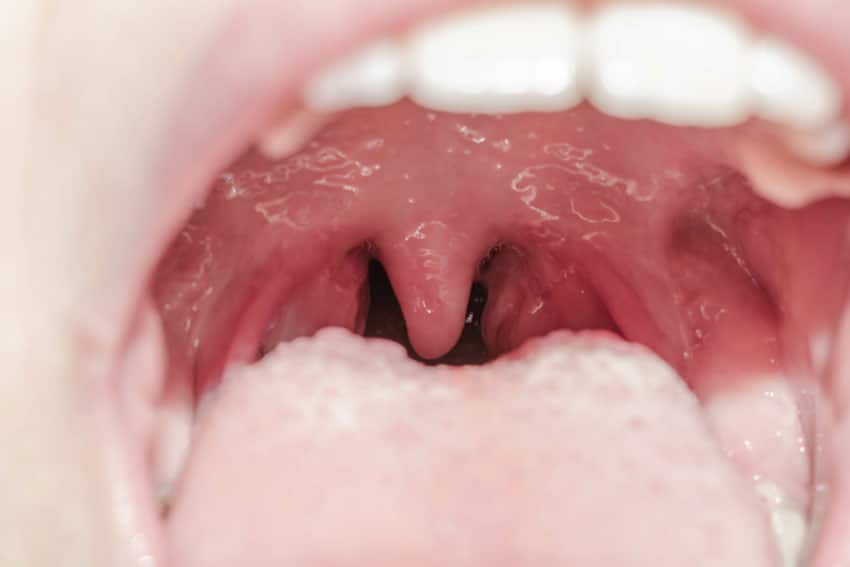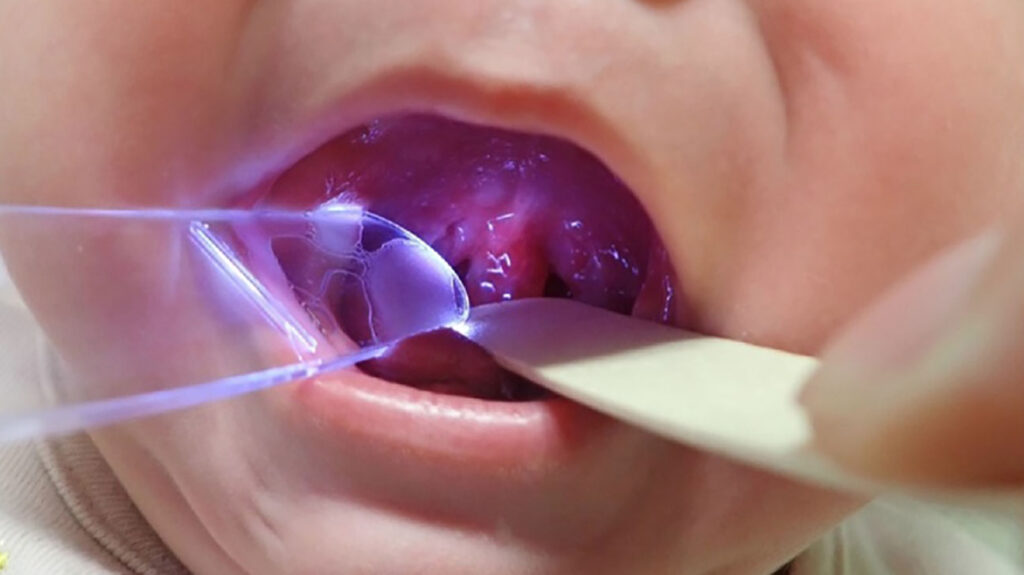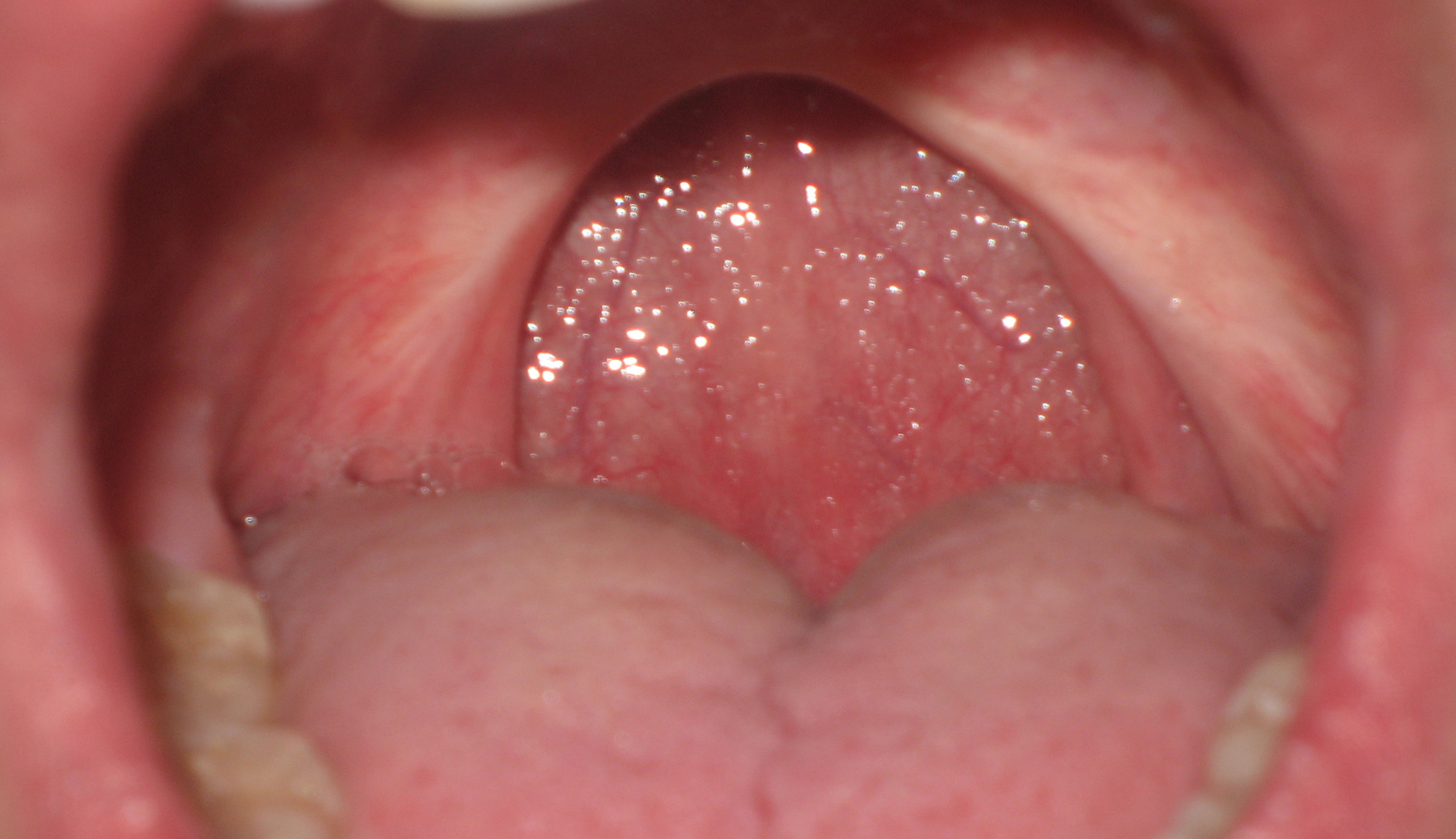The uvula is a little piece of flesh that hangs down from the soft palate at the back of your mouth. It is the part of your tongue that looks like a tiny upside-down parachute. The uvula can be removed if it causes problems with breathing, swallowing or speaking.
Uvula removal surgery is done to treat snoring and sleep apnea (a condition where you stop breathing during sleep). This surgery can be done through open or endoscopic techniques.
The procedure for removing the uvula usually takes between 30 minutes and an hour. You’ll need to stay in hospital for 2 days after surgery, but you will be able to go home once you’ve recovered from any pain or discomfort caused by the operation.
The uvula is a tiny, grape-like protuberance that hangs down from the soft palate at the back of the mouth. It is usually removed during tonsillectomy.
The uvula has no known function, but some people believe it may have a role in speech development.
It may be necessary to remove the uvula if it blocks breathing or causes blockages during swallowing. This can lead to complications such as choking or pneumonia.
During a tonsillectomy, your doctor will remove all or part of your tonsils (tonsillae). Your tonsils are two round masses of tissue on either side of your throat (pharynx). They help protect you from germs by making special white blood cells called lymphocytes that fight infection.
The lymphocytes are produced in clusters called follicles in your tonsils. Tonsillectomy involves removing these follicles along with some surrounding tissue from each tonsil to make room for them to grow inside your body.
Removing these structures can help prevent more infections, especially common colds and ear infections caused by viruses such as strep throat and staphylococcus bacteria
What is the point of a uvula?
The uvula, also known as the palatine uvula, is a small appendage that hangs down from the soft palate. It’s usually about 3 to 5 centimeters (1 to 2 inches) in length and has a somewhat boat-like shape.
The uvula has several useful functions. For one thing, it helps protect against infection by filtering out dirt and dust before they reach the back of your throat. The uvula also helps prevent food particles from entering your nasal passages when you swallow.
It’s important for children to learn about their bodies, so it’s good for them to know what their uvulas are for!
The uvula is a small, fleshy, dangly thing that hangs down from the back of your mouth. It’s also called the palatine uvula, because it’s connected to the soft palate (the part of the roof of your mouth).
The uvula may help you taste food better and make you sound more like a native speaker. But its main job is to keep food from going down your throat when you swallow, says Dr. Michael Zinnerman, an ear, nose and throat doctor at University Hospitals Case Medical Center in Cleveland.
Your uvula has two parts: a fleshy piece called the body and a thin strip of mucus membrane called the root. The body hangs down from the soft palate like an upside-down V. The root connects to the back of your tongue and extends down into your throat — but not as far as your tonsils or adenoids do, Zinnerman says.
Why would you remove your uvula?

The uvula is a small, dangling piece of tissue that hangs from the back of your mouth. It helps you pronounce certain sounds and can even make you gag.
Removing your uvula is an uncommon procedure that’s typically done to treat snoring or sleep apnea. It’s also used in some cases of throat cancer when the disease has spread to the uvula.
In rare cases, the uvula may be removed for cosmetic reasons (to improve the look of your face).
Here are some common reasons why doctors may recommend removing it:
Snoring: If you’re snoring loudly at night and disturbing your partner, a doctor may suggest removing your uvula as part of a treatment plan for sleep apnea. Snoring occurs when air passes through partially closed airways in your nose or throat. The vibration from this turbulence causes noise that keeps you awake at night.
Sleep apnea: Sleep apnea is a serious disorder characterized by pauses in breathing during sleep. When this happens repeatedly throughout the night, it can lead to daytime fatigue, memory problems and high blood pressure. If your doctor suspects you have sleep apnea, he or she may test you using a breathing machine called an oximeter while you
The uvula is a small, dangling piece of tissue in the back of your throat. It’s the last part of your soft palate to fully develop, and it’s the only part of your body that doesn’t have any other purpose. (The tonsils and adenoids have other functions, but they’re not considered parts of the body.)
If you have a tonsillectomy or adenoidectomy, you’ll lose any chance at a normal uvula. But if you don’t need these surgeries, you can keep your uvula if it’s not bothering you.
There are times when removing the uvula may be necessary:
If it blocks your airway or causes discomfort when it touches food during swallowing
If it gets infected frequently
The uvula is a small, fleshy tissue at the back of your mouth that hangs from the soft palate. It’s usually not noticeable, but it can get in the way during certain procedures.
The uvula is more likely to cause complications if it’s attached to your tonsils. This happens most often when you have chronic tonsillitis. In some cases, you may need surgery to remove the tonsils and part or all of your uvula.
If your uvula is removed, swallowing food will be easier because it won’t interfere with how your tongue moves in your mouth. Some people who have had their uvulas removed also report that they don’t snore or snort as much as they used to because their nasal passages are clearer without this extra tissue in place.
Can you choke on your uvula?
Can you choke on your uvula?
The short answer is no — you can’t choke on your uvula. But that doesn’t mean you can’t damage it or cause problems for yourself by trying to eat something too large.
The uvula is the dangling, bulbous bit of flesh that hangs from the back of your tongue. It’s attached to the soft palate at one end and the back of the throat at the other. It’s about 1 inch long and made up of tiny muscle fibers that help keep food and saliva moving around in your mouth.
It’s probably best not to think about what it tastes like — but if you try to eat something big enough to get stuck in there, then yes, you could be in trouble. But if it happens that way, then it’s likely because something else has gone wrong besides simply having an oversized piece of food in your mouth.
The uvula is a small, grape-like protrusion that hangs down from the soft palate at the back of your mouth. It’s normally hidden by other structures in your throat, but when you stick out your tongue, it can be seen hanging down from the back of your mouth.
The uvula has no known function in adults and is largely vestigial — it’s like an evolutionary remnant that’s no longer necessary for survival. But some people are more likely to experience problems with their uvulas than others.
For example, people who have sleep apnea or frequent snoring may have swollen uvulas due to the extra tissue that accumulates during sleep. People with uvular hypertrophy (a noncancerous growth) may have difficulty swallowing or breathing and need surgery to remove their enlarged uvula.
It’s possible to choke on anything, including popcorn kernels and toothpicks — so it’s not surprising that you could also choke on your own uvula if it became lodged in your throat. If this happens while you’re eating, drinking or speaking, there’s a good chance that an object will get stuck in one of your airways and cause you to suffocate.
What if my uvula is touching my tongue?

Your uvula is a small piece of tissue that hangs down from the back of your tongue. It’s not supposed to touch anything else in your mouth, but sometimes it does. This is called uvulopalatopharyngoplasty (UPPP).
In most cases, UPPP isn’t serious and doesn’t require treatment. But if you have trouble breathing or swallowing because of UPPP, you may need surgery to correct it.
What causes UPPP?
The cause of UPPP isn’t known. In some cases, it may happen after you’ve had tonsillectomy or adenoidectomy — procedures to remove the tonsils or adenoids in your throat — or if there’s been an injury to your mouth or throat. UPPP can also be caused by other health conditions that affect your sinuses, such as chronic sinusitis or allergies.
How do I know if I have UPPP?
If your uvula has been damaged and is touching your tongue, other symptoms may include:
Trouble breathing through your nose
Sore throat or difficulty swallowing food or liquids
If your uvula is touching your tongue, it could be a sign of a more serious condition.
This could also be a symptom of sleep apnea, according to the National Heart, Lung and Blood Institute. “If you have sleep apnea, you may wake up with a dry mouth and sore throat due to the lack of airflow in your throat,” says Dr. Gorga.
In addition to this symptom, people with sleep apnea often have loud snoring and difficulty breathing while sleeping. They may also experience chronic fatigue and daytime drowsiness as well as high blood pressure and heart failure symptoms, according to Mayo Clinic.
A doctor can determine whether or not someone has sleep apnea by doing a physical exam and looking at medical history reports. Tests like an overnight sleep study may be necessary for a definitive diagnosis.
Why did my uvula get bigger overnight?
A uvula is a small piece of fleshy tissue that hangs down from the back of your soft palate, which is the soft part of your roof of your mouth. It’s commonly called the “drip” or “gargle” gland because it helps you to swallow liquids easily by catching the excess liquid and spitting it out. The uvula is attached to the base of your tongue, so when you swallow, it moves up and down with your tongue as well.
The uvula often gets infected when you have a cold or sore throat. The infection makes it swell up, which can make it feel like there is a lump in your throat. If this happens to you often, talk to your doctor about getting tested for allergies or asthma because they could be contributing to this swelling.
Why did my uvula get bigger overnight?
It’s impossible to say exactly what caused your uvula to swell, but I’ll give you some ideas.
The uvula is a small piece of tissue that hangs down from the back of the soft palate (soft part at the back of the mouth). It usually hangs down in a relaxed state, but when you swallow, it can rise up a little bit.
When it gets swollen, it blocks the opening to your throat and makes swallowing more difficult. This can make eating uncomfortable and lead to vomiting or coughing. In rare cases, it may also cause difficulty breathing if it blocks the airway completely.
Some things that can cause swelling include:
Food allergies — If you have an allergy to something like dairy products or peanuts, this could be causing inflammation in your throat and leading to swelling.
Allergies — If you have allergies, an infection may be causing inflammation in your throat and leading to swelling.
Viral infections — Viral infections like mumps and mononucleosis can cause inflammation in your throat as well as other symptoms like fever and sore throat.
Sinus infections — Sinus infections can cause pain around your nose area along with other symptoms like headache and cough.
Does your uvula make you gag?

I have a uvula, but it doesn’t make me gag. It’s the longest in the world, according to Guinness World Records, and is believed to be part of why I am so good at singing.
I’m a professional opera singer. I’ve been training since I was 8 years old and have always been able to hit very high notes, but I didn’t start getting paid for my work until this year.
I don’t like when people call me an opera singer because I find it embarrassing. They don’t use terms like “rock star” or “chef” or “actor” when they talk about their jobs, so why should they use one that makes them sound like they’re performing at Carnegie Hall?
My friends are all supportive of my career choice, but most of them think that I should just give up on music altogether and pursue another interest — like ballet. But ballet doesn’t pay as well as opera does, and besides that, I really love it!
The uvula is a small, fleshy projection that hangs from the back of your mouth and is attached to the soft palate. It’s the most prominent part of your soft palate and hangs down from the back of your tongue like a tiny curtain.
Most people have no problem with their uvula, but there are some who experience problems with it. Some people have an overactive gag reflex when they see or think about anything touching their uvula. Their gag reflex may be triggered by even seeing someone else gagging due to something touching their own uvula! In these cases, there can be severe consequences for those who suffer from this condition.
The uvula is a small piece of tissue that hangs down from the soft palate. It is located at the back of the mouth, near the top of the throat.
The uvula is often mistaken for the soft palate, which is another part of the mouth that lies above it.
Sometimes, when people feel nauseous or have an upset stomach, they gag. This can happen when they try to swallow food or drink.
Gagging happens when you have something in your mouth that touches your uvula, causing it to move back and forth. The gagging reflex prevents you from accidentally swallowing something harmful or choking on it.
Why does my uvula get stuck in my throat?
The uvula is a small piece of tissue that hangs from the back of your mouth. The uvula helps you speak and swallow. Most people have a uvula, but not all. If you do have one, it’s usually about 1 inch long.
You can feel your uvula when you touch the soft part at the back of your mouth with your tongue. This is called touching your “soft palate.” You might be able to see your uvula as well if you look into a mirror and open wide — it will be visible as the thing that hangs down in the middle of your mouth like a little red banana!
Why does my uvula get stuck in my throat?
The reason why this happens is because of the way it’s shaped: The tip of the uvula has some grooves in it, which act like little hooks that catch on things like food particles or mucus. When they catch on something, they can pull on each other and make them both harder to move around freely — kind of like how when two pieces of Velcro are stuck together, they’re harder to separate than when they’re not stuck together at all!
